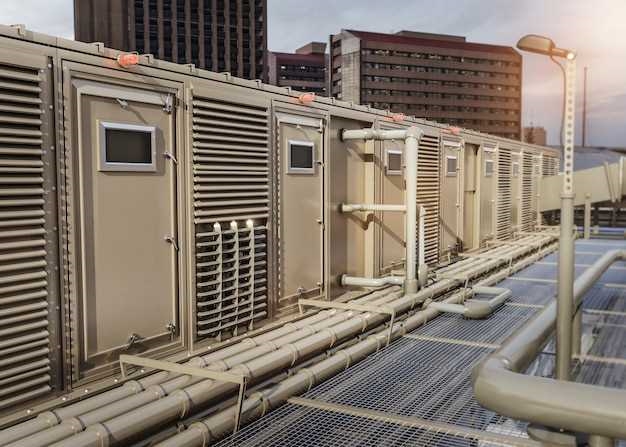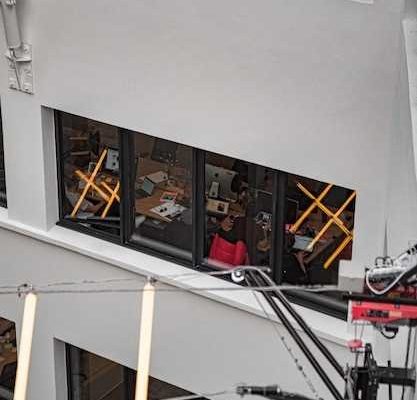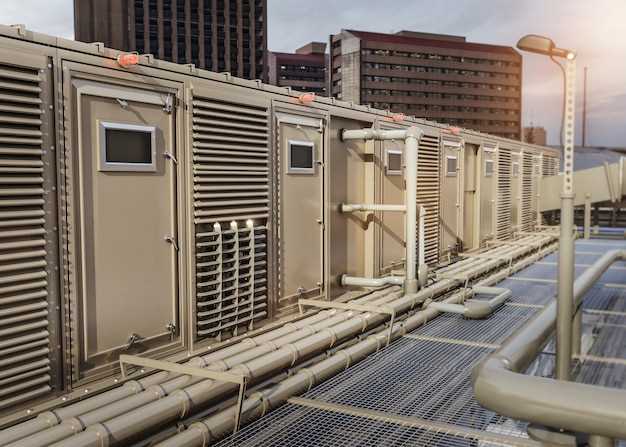
When it comes to creating a comfortable and productive environment for your employees and customers, the HVAC system plays a crucial role. The right heating, ventilation, and air conditioning system can significantly impact the overall energy efficiency, indoor air quality, and cost-effectiveness of your commercial building. However, with the multitude of options available in the market, it can be overwhelming to determine which HVAC system is best suited for your specific needs.
One of the primary factors to take into account is the size and layout of your commercial facility. Whether you operate in a small office space or a large warehouse, the HVAC system should be able to efficiently distribute conditioned air throughout the entire area. Proper airflow and temperature control are essential for maintaining a comfortable and consistent environment, regardless of the season.
Another critical consideration is the energy efficiency of the HVAC system. With rising energy costs and increasing environmental concerns, opting for an energy-efficient system can have a significant impact on your operational expenses and carbon footprint. Look for systems that have high Seasonal Energy Efficiency Ratio (SEER) ratings and Energy Star certifications, as they are designed to minimize energy consumption while maximizing performance.
Additionally, it is important to evaluate the maintenance requirements and lifespan of the HVAC system. Regular maintenance is essential for ensuring optimal performance and longevity. Consider systems that are easy to maintain and have readily available replacement parts. Investing in a durable and reliable system can save you from frequent repairs and replacements, ultimately reducing downtime and expenses.
Ultimately, selecting the right HVAC system for your commercial building requires careful consideration of various factors, including size, energy efficiency, maintenance requirements, and durability. By choosing a system that aligns with your specific needs and priorities, you can create a comfortable and efficient environment that enhances productivity and customer satisfaction.
Building Size and Layout
When it comes to selecting the most suitable HVAC system for your commercial building, one of the crucial factors to consider is the size and layout of the building. The size and layout of a building play a significant role in determining the type and capacity of the HVAC system required to efficiently heat, cool, and ventilate the space.
Optimal System Sizing
The size of the building directly affects the HVAC system’s sizing requirements. A larger building will typically require a more powerful system with higher capacity to adequately heat or cool the entire space. On the other hand, a smaller building may require a smaller system with lower capacity. It is important to accurately assess the square footage and volume of the building to determine the appropriate system size.
Layout Considerations
The layout of the building also plays a crucial role in HVAC system selection. The number and placement of rooms, as well as the presence of partitions, corridors, and open spaces, can impact the airflow and distribution of conditioned air. A well-designed HVAC system takes into account the building’s layout to ensure even temperature distribution and efficient operation.
- Room Configuration: The configuration of individual rooms, such as their shape and size, can affect the airflow patterns and temperature distribution. Irregularly shaped rooms or rooms with high ceilings may require additional considerations in system design.
- Partitioning: The presence of partitions or walls can impact the airflow and create temperature variations. Proper placement of vents and ductwork can help mitigate these effects and ensure consistent comfort throughout the building.
- Corridors and Open Spaces: Corridors and open spaces can act as pathways for airflow, affecting the distribution of conditioned air. Strategic placement of vents and diffusers can help optimize airflow and maintain desired temperatures.
Considering the building size and layout is essential in selecting the right HVAC system for your commercial building. By accurately assessing these factors, you can ensure optimal comfort, energy efficiency, and cost-effectiveness in your HVAC system choice.
Energy Efficiency and Cost
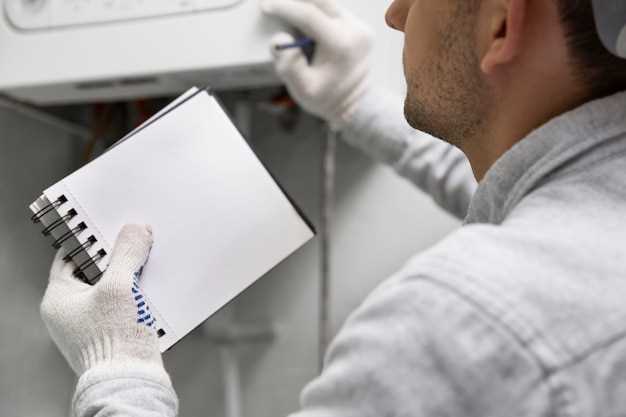
When it comes to optimizing the performance of your commercial building’s heating, ventilation, and air conditioning (HVAC) system, considering energy efficiency and cost is crucial. By focusing on these factors, you can ensure that your HVAC system operates efficiently, reduces energy consumption, and minimizes operational expenses.
Enhancing Energy Efficiency
Improving the energy efficiency of your HVAC system involves various strategies that can significantly impact your building’s overall energy consumption. One approach is to invest in high-efficiency equipment that utilizes advanced technologies to maximize energy savings. These systems often incorporate features such as variable speed drives, intelligent controls, and advanced sensors to optimize performance based on real-time conditions.
Another aspect to consider is the insulation and sealing of your building. Proper insulation helps maintain a consistent indoor temperature, reducing the workload on your HVAC system. Additionally, sealing any air leaks in your building’s envelope prevents the escape of conditioned air, ensuring that your HVAC system operates efficiently and minimizes energy waste.
Cost Considerations
While energy efficiency is essential, it is equally important to consider the cost implications of your HVAC system. When evaluating different options, it’s crucial to assess not only the upfront costs but also the long-term operational expenses. A system with a higher initial investment may offer significant energy savings over time, resulting in lower overall costs in the long run.
Furthermore, maintenance and repair costs should be taken into account. Opting for a system that requires minimal maintenance and has readily available replacement parts can help reduce downtime and associated expenses. Additionally, considering the lifespan of the system and its warranty coverage can provide insights into potential future costs.
It’s also worth exploring any available incentives or rebates offered by energy efficiency programs or local authorities. These financial incentives can help offset the initial investment and further enhance the cost-effectiveness of your HVAC system.
In conclusion, when selecting an HVAC system for your commercial building, prioritizing energy efficiency and cost considerations is crucial. By choosing a system that maximizes energy savings and aligns with your budget, you can create a comfortable indoor environment while minimizing operational expenses in the long run.
Climate and Weather Conditions
When selecting an appropriate HVAC system for your commercial building, it is crucial to take into consideration the unique climate and weather conditions of your location. The climate and weather conditions play a significant role in determining the heating, ventilation, and air conditioning requirements of your building.
Understanding the climate of your area is essential as it helps you identify the specific challenges your HVAC system will face. Different regions experience varying temperatures, humidity levels, and precipitation patterns throughout the year. These factors directly impact the performance and efficiency of your HVAC system.
In regions with extreme temperatures, such as scorching summers or freezing winters, it is crucial to choose an HVAC system that can effectively handle the demands of both heating and cooling. This ensures optimal comfort for occupants and prevents excessive energy consumption.
Humidity levels also play a significant role in HVAC system selection. High humidity can make a space feel uncomfortable and lead to issues such as mold growth and poor indoor air quality. In such areas, it is important to choose an HVAC system with effective dehumidification capabilities.
Furthermore, the amount and frequency of precipitation in your area can impact the HVAC system’s outdoor components. Heavy rainfall or snowfall can affect the performance and durability of the system if it is not designed to withstand such weather conditions. Proper drainage and protection measures should be considered to prevent water damage.
By considering the climate and weather conditions of your location, you can make an informed decision when selecting the right HVAC system for your commercial building. This ensures that your system is capable of providing optimal comfort, energy efficiency, and durability throughout the year.
Maintenance and Service Requirements
Ensuring the smooth operation and longevity of your commercial building’s heating, ventilation, and air conditioning (HVAC) system requires careful attention to maintenance and service requirements. Proper maintenance and regular servicing are essential for optimizing the performance of your HVAC system, minimizing energy consumption, and avoiding costly breakdowns.
Regular maintenance involves a comprehensive inspection of all HVAC components, including filters, coils, fans, and motors. It also includes cleaning and lubricating moving parts, checking refrigerant levels, and inspecting electrical connections. By addressing these maintenance tasks, you can prevent potential issues and ensure that your HVAC system operates efficiently.
Service requirements for your HVAC system may vary depending on factors such as the size of your commercial building, the complexity of the system, and the specific needs of your business. It is crucial to establish a maintenance schedule and work with qualified professionals who specialize in commercial HVAC systems. These experts can provide regular inspections, identify potential problems, and perform necessary repairs or replacements.
Regular maintenance and service not only enhance the performance of your HVAC system but also contribute to a healthier indoor environment for your employees and customers. Clean filters and coils help improve air quality by reducing the presence of allergens and pollutants. Additionally, a well-maintained HVAC system can help regulate temperature and humidity levels, creating a comfortable and productive workspace.
Investing in regular maintenance and service for your commercial building’s HVAC system can yield long-term benefits. By ensuring that your system operates at peak efficiency, you can reduce energy costs and extend the lifespan of your equipment. Moreover, proactive maintenance can help you avoid unexpected breakdowns and costly emergency repairs, saving you both time and money.
In conclusion, prioritizing maintenance and service requirements for your commercial building’s HVAC system is crucial for optimal performance, energy efficiency, and cost savings. By partnering with experienced professionals and adhering to a regular maintenance schedule, you can ensure the longevity and reliability of your HVAC system, providing a comfortable and healthy environment for all occupants.
Noise Levels and Indoor Air Quality
When selecting an HVAC system for your commercial facility, it is essential to take into consideration the impact on noise levels and indoor air quality. These factors play a crucial role in creating a comfortable and productive environment for employees and visitors.
Noise levels can significantly affect the overall ambiance of a commercial building. Excessive noise can be distracting and disruptive, leading to decreased productivity and increased stress levels among occupants. Therefore, it is important to choose an HVAC system that operates quietly, minimizing any potential disturbances. Consider systems with noise-reducing features or technologies to ensure a peaceful and conducive working environment.
Indoor air quality is another critical aspect to consider when selecting an HVAC system. Poor air quality can lead to various health issues, including allergies, respiratory problems, and discomfort. It is essential to choose a system that effectively filters and purifies the air, removing pollutants, dust, and allergens. Look for HVAC systems with high-quality air filters and advanced ventilation options to maintain optimal indoor air quality.
Additionally, proper maintenance and regular servicing of the HVAC system are crucial for ensuring optimal noise levels and indoor air quality. Regular inspections, filter replacements, and cleaning routines should be implemented to keep the system running efficiently and effectively. By prioritizing noise levels and indoor air quality in your HVAC system selection and maintenance, you can create a healthier and more comfortable environment for everyone in your commercial building.
Future Expansion and Flexibility
As your commercial building grows and evolves, it is important to consider the future expansion and flexibility of your HVAC system. This section will explore the significance of planning for future needs and the benefits of a flexible HVAC system.
Planning for Future Needs
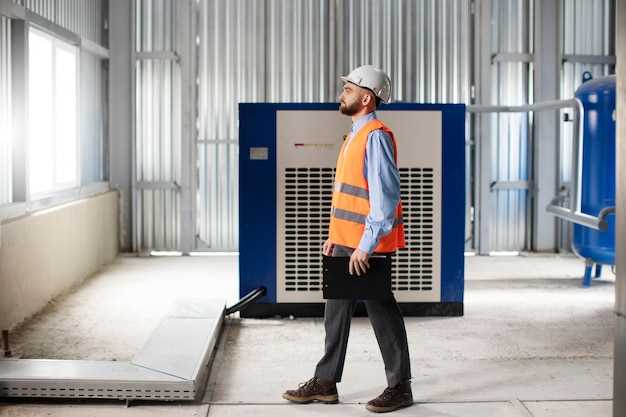
When selecting an HVAC system for your commercial building, it is crucial to anticipate future growth and changes. By considering the potential expansion of your business or building, you can ensure that your HVAC system will be able to accommodate increased heating and cooling demands. This proactive approach will save you from the hassle and expense of having to replace or upgrade your system in the near future.
Additionally, it is important to consider any potential changes in the layout or use of your commercial space. If you plan to reconfigure or repurpose certain areas of your building, a flexible HVAC system will allow for easy adjustments to accommodate these changes. This adaptability will ensure that your HVAC system can effectively serve the evolving needs of your business.
The Benefits of a Flexible HVAC System
A flexible HVAC system offers numerous advantages for your commercial building. Firstly, it allows for easy modifications and expansions without the need for extensive renovations. This flexibility can save you both time and money, as you can make adjustments to your HVAC system without disrupting your daily operations.
Furthermore, a flexible HVAC system can optimize energy efficiency. By having the ability to adjust the heating and cooling capacity based on the specific needs of different areas within your building, you can avoid wasting energy on spaces that are not in use or require less conditioning. This not only reduces your energy costs but also contributes to a more sustainable and environmentally friendly operation.
In conclusion, considering future expansion and flexibility when choosing an HVAC system for your commercial building is essential. By planning for future needs and opting for a flexible system, you can ensure that your HVAC system will be able to adapt to the changing demands of your business, save costs, and promote energy efficiency.
